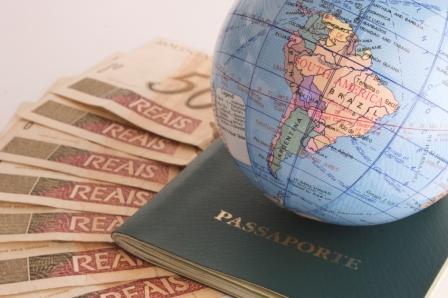|
|||||||||||||||||||||||||
|
Financial Aid for Study Abroad
Be sure to meet with a Financial Aid Advisor at Saint Augustine's College.
Office of Business & Finance
Hunter Building (919) 516-4006 Federal Aid Federal aid can consist of grants and student loans. Students (and typically parent or guardian) must complete a FAFSA application to determine your personal level of eligibility for Federal aid. Eligibility is calculated by two numbers: 1) your personal / family financial status, and 2) the cost of your education (specific college or program). Grants: Grants do not require that you re-pay this money
Loans: Loans require that you re-pay this money along with interest The Federal Direct Ford Student Loan or the Federal Stafford Guaranteed Student Loan is available to students who demonstrate need. The Federal government pays interest on subsidized loans as long as the student is enrolled half-time and demonstrates financial need through the submission of the Free Application for Federal Student Aid (FAFSA). Repayment begins after you graduate, leave school, or drop below half-time. These loans can also be unsubsidized and are available to students regardless of need; interest is charged to the students while in school. A student may choose to make the interest-only payments on the unsubsidized loan or allow the interest to be added to the loan principal and then pay both principal and interest after leaving school. Federal PLUS loans are available to parents of dependent students under the Federal Direct Loan Program and the Federal Family Education Loan Program (FFELP). These loans are made either by the school (direct loan) or through a private lender. Parents are responsible for all interest charges. Repayment begins 60 days after loan disbursements. Institutional Aid Some financial aid is funded by the student's home institution, not based on public monies. These scholarships can be based on need and/or on merit. Institutional aid can come from a variety of sources, which includes alumni, faculty, endowments, etc. Some aid can be specified for overseas study but other scholarships can be restricted to the campus, state, or for domestic programs, etc. If you are planning to attend an overseas study program sponsored by another institution, your home institution, through a written agreement between the schools, might allow you to use your financial aid. But students should realize that policies vary among institutions of higher education and therefore, should check with their study abroad advisors and financial aid administrators regarding enrollments with another institution. Private and Public Organizations Other than governmental and institutional aid, private organizations, foundations, corporations, and civic groups are additional sources of aid for study abroad. For example, the Coca-Cola Foundation, Amoco, Chrysler Corporation, etc., have given funds for overseas study. The Rotary Foundation, which has a private, sponsored International scholarship program provides funds for undergraduate, graduate, and vocational students. Some private and public organizations will give overseas study funding for students in a particular major or area of study. Private organizations and associations related to your area of study or destination are worth consulting, as are ethnic and service organizations in your home town. The League of United Latin American Citizens, Alliance Francaise, Dante Alighieri, Goethe groups, etc., are examples of other sources of funding for overseas study and research. See the Scholarships page for more options How Do I Make Arrangements to Have Financial Aid Applied to a Study Abroad Program? Upon application to a study abroad program, you should also contact the financial aid office to see if there are special application processes or policies required in receiving financial aid for overseas study. For example, the study abroad office may provide the financial aid office with costs or a budget for your study abroad program that will facilitate the disbursement of aid when you leave the country. You may also need to check with the bursar's office on how they can contact you or to make financial aid disbursement arrangements. If you have previous loans, you should check wih the registrar's office regarding deferment procedures while you're enrolled overseas. Be sure to check with all four offices, weeks before your plans are finalized. Keep records of all forms submitted and submission dates as well as all personal contacts made (individuals and dates of those contacts). Those records will help you avoid confusion as well as clarify issues that might arise. Could Financial Aid for Study Abroad Affect Funding for Next Semester's Aid? There is a possibility that funding for future semesters might be affected resulting from financial aid given for a semester's study abroad program as your eligibility for certain types of aid might have expired. The financial aid office will be monitoring your progress toward your degree as to whether you have exceeded your eligibility requirements. The best advice is to check with a Financial Aid advisor about your funding. How Many Credits Do I Need to Receive Financial Aid (Including Loans) for Study Abroad? Credit level required for direct subsidized/unsubsidized loan eligibility for all semesters is half-time time. For undergraduates, half-time requires enrollment in at least 6 credit hours. For scholarships and grants, you need to maintain the enrollment level required for each aid program listed on your financial aid award letter. Is Power of Attorney Useful if I am Overseas? Source: www.studyabroad.com |
||||||||||||||||||||||||
|
|||||||||||||||||||||||||
 There are multiple types of financial aid that can typically be used for international programs.
There are multiple types of financial aid that can typically be used for international programs.